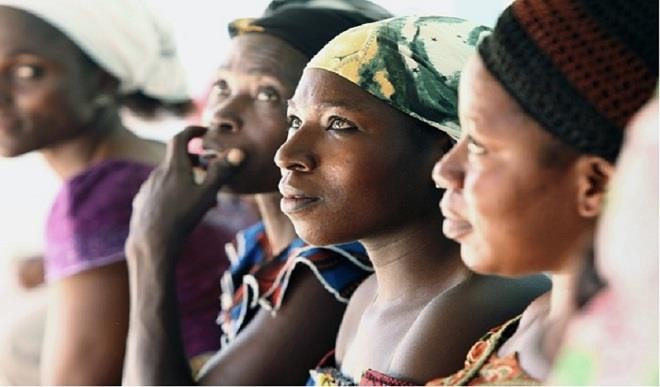Widow group urges protection for vulnerable women
The National Association of Nigerian widows (NANIWO) says widows need more support from government and philanthropists to return to productive lives and overcome challenges that come with losing a spouse and breadwinner. “Our challenge is financial support. We are suffering seriously,” said Hope Eyong, head of the association’s secretariat. “We don’t know how the government […]


The National Association of Nigerian widows (NANIWO) says widows need more support from government and philanthropists to return to productive lives and overcome challenges that come with losing a spouse and breadwinner.
“Our challenge is financial support. We are suffering seriously,” said Hope Eyong, head of the association’s secretariat.
“We don’t know how the government can support us so that we can be able to push our women forward.”
She spoke as NANIWO marked the end of its fiscal year with a Christmas party for dozens of pupils of Cephas Academy in Abuja.
Eyong started the association 15 years ago when she turned a widow.
“The idea came to me when I lost my husband. The whole thing I went through, I knew it wasn’t only me facing this situation,” she said.
NANIWO has since become a support group for thousands of widows on its membership list. It has spread from Rivers, where it first started, to nearly all states of the country.
Its Abuja chapter opened two years ago. This year, it honoured two women for rendering assistance to widows and children left behind by the death of their fathers: Rose-Claire Nwadiaru, as its most child-friendly personality of the year; and Ngozi Okonkwo, as a “heroic advocate” of children’s rights and empowerment.
In addition to regular talk meetings, it offers widows a network of women in similar situations—and runs a contribution purse that members borrow from to support petty trades and run their households in the absence of a husband.
Dominic Saro-Laka, was approached two years ago by a team led by the association’s president Cecilia Cobham, and agreed to become a patron—and donated part of his office to serve as secretariat for the association.
“Society needs to do more to assist those that are vulnerable, not by circumstances of their making but circumstances that are forced on them, to ensure their development and wellbeing, especially in Nigeria where the economy is survival of the fittest,” said Saro-Laka.
“The biggest challenge widows have in Nigeria is denial of inheritance rights when they have lost their husband. You find husband’s relatives trying to take things away from them.
“Government needs to step up action on that, so that, because they are vulnerable, they are not denied their right by gold diggers It is wrong. They became widows because of circumstances beyond their control. They should not be crucified because of that. The society needs too come together to help them.”
